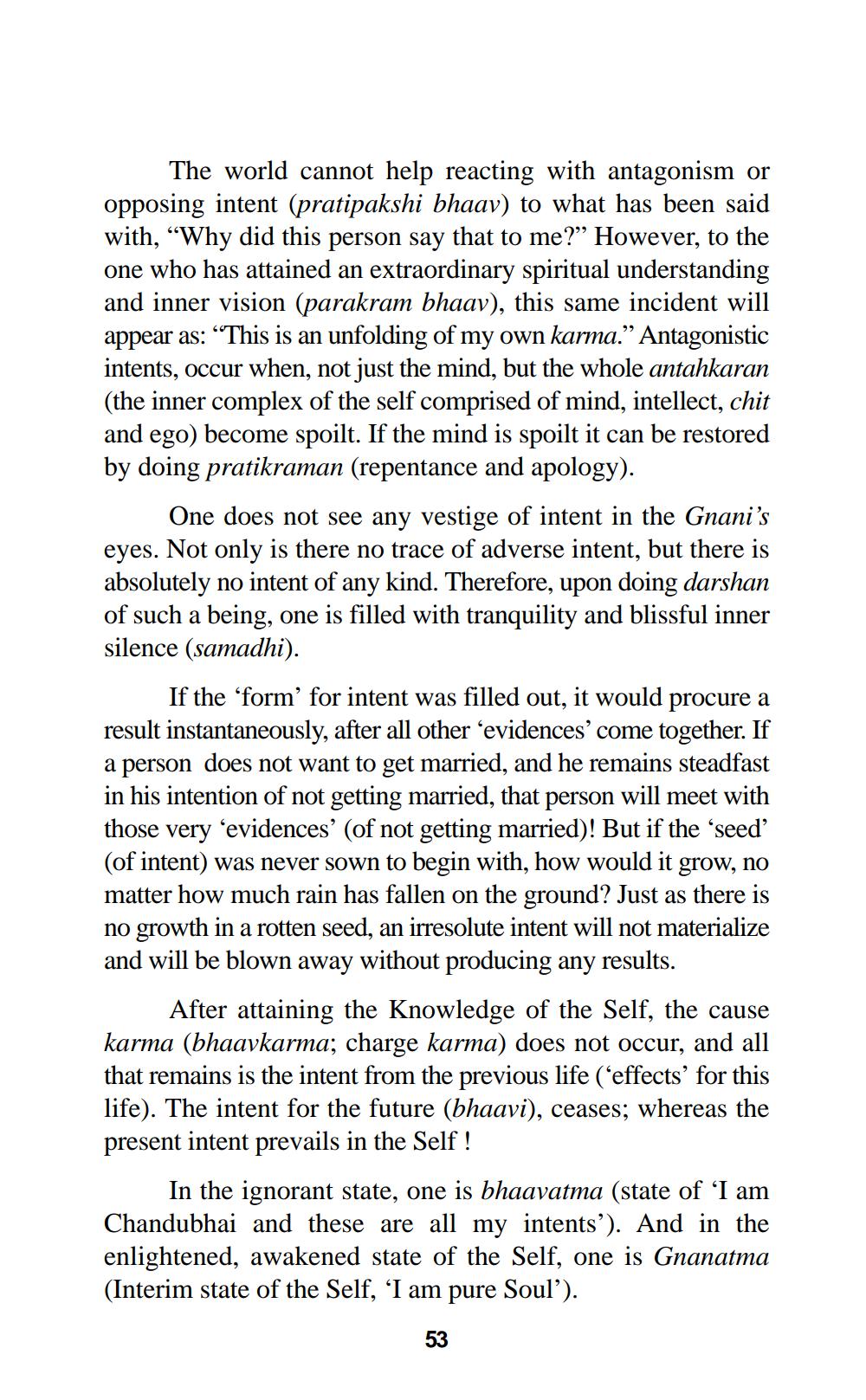________________
The world cannot help reacting with antagonism or opposing intent (pratipakshi bhaav) to what has been said with, "Why did this person say that to me?" However, to the one who has attained an extraordinary spiritual understanding and inner vision (parakram bhaav), this same incident will appear as: "This is an unfolding of my own karma." Antagonistic intents, occur when, not just the mind, but the whole antahkaran (the inner complex of the self comprised of mind, intellect, chit and ego) become spoilt. If the mind is spoilt it can be restored by doing pratikraman (repentance and apology).
One does not see any vestige of intent in the Gnani's eyes. Not only is there no trace of adverse intent, but there is absolutely no intent of any kind. Therefore, upon doing darshan of such a being, one is filled with tranquility and blissful inner silence (samadhi).
If the 'form' for intent was filled out, it would procure a result instantaneously, after all other 'evidences' come together. If a person does not want to get married, and he remains steadfast in his intention of not getting married, that person will meet with those very 'evidences' (of not getting married)! But if the 'seed' (of intent) was never sown to begin with, how would it grow, no matter how much rain has fallen on the ground? Just as there is no growth in a rotten seed, an irresolute intent will not materialize and will be blown away without producing any results.
After attaining the Knowledge of the Self, the cause karma (bhaavkarma; charge karma) does not occur, and all that remains is the intent from the previous life ('effects' for this life). The intent for the future (bhaavi), ceases; whereas the present intent prevails in the Self!
In the ignorant state, one is bhaavatma (state of ‘I am Chandubhai and these are all my intents'). And in the enlightened, awakened state of the Self, one is Gnanatma (Interim state of the Self, 'I am pure Soul').
53




